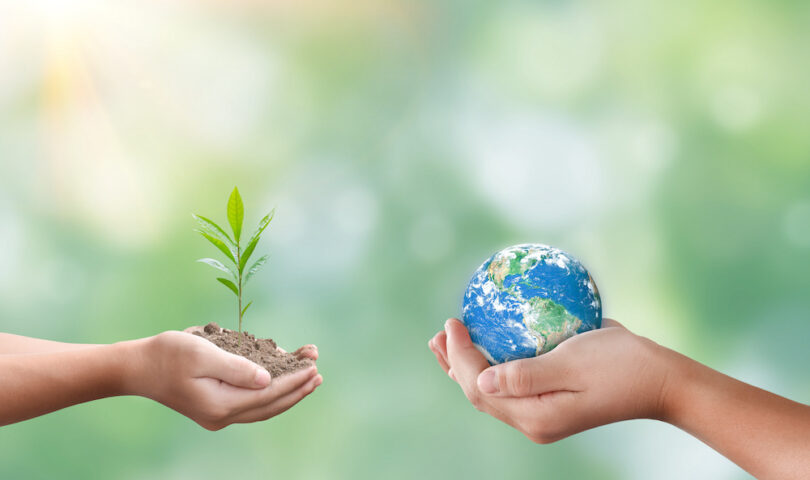Climate change isn’t just altering our natural world; it’s also taking a toll on the mental health of people around the globe. The younger generation is feeling the effects the most, with 75% of youth worldwide saying they are scared for the future due to the impacts of climate change and 68% of Gen Zers in the US negatively affected in some way. As temperatures rise, sea levels surge and extreme weather events become more frequent, the psychological impact on today’s youth is profound and concerning.
Climate Mental Health Network

I spoke with Sarah Newman, Executive Director of CMHN, to learn more about their work and how we can help the younger generation have a positive and happier future.
“Young people are experiencing extreme levels of loneliness, anxiety and depression already, and then you add climate change on top of that, and it’s just a multiplier effect.”
The Contributing Factors
Climate anxiety is becoming increasingly prevalent among young people. The constant barrage of alarming news about environmental degradation and its consequences can lead to feelings of helplessness and fear. Young people are growing up knowing they will inherit a planet facing escalating issues and the mammoth task of addressing and solving them. These factors combined are overwhelming and can act as a trigger for anxiety and depression.
“Young people are experiencing the impacts of climate change in their everyday lives and know that it will only worsen in their lifetimes unless dramatic global actions are taken now. This existential threat influences significant life choices, including where to live, what to study, what type of work, whether to have children and how they can most effectively address climate change. There’s also a profound sense of disappointment in institutions and governments that have failed to respond to the climate crisis adequately. All of this culminates in a range of emotions that young people are experiencing, including anger, anxiety, sadness, fear and hopelessness.”
It’s sad to hear that many young people fear the future. They are witnessing increased climate-related disasters and rising concerns about food security and access to clean water. The uncertainty surrounding the future exacerbates mental health issues, and the thought of trying to thrive in a changing world can be challenging to process.
With the loss of biodiversity, natural habitats and even entire species, some young people experience a sense of grief for the world around them. Solastalgia is the distress induced by changes to or loss of your homeland. Many people also mourn the disappearance of iconic landscapes and the extinction of animals they grew up loving and learning about. This grief over environmental loss can contribute to feelings of sadness and hopelessness.
Furthermore, climate change exacerbates social inequalities, often disproportionately affecting marginalised communities. Young people from these communities can face additional stressors, including economic instability, lack of access to resources and displacement due to climate-related events. This can lead to feelings of isolation from society, further impacting mental health.
While many young people are actively engaged in climate activism, the relentless pursuit of environmental justice can take a toll on their mental health. Balancing activism with personal well-being becomes challenging, leading to burnout, exhaustion and disillusionment. Gen Zers are the first group of people who have lived in an entirely digital age. Always being online and connected can be overwhelming, with constant comparisons and seeing the highlight reel of how others are acting and living.
From a Gen Zer Perspective

Zoharia Drizin, part of the GenZ advisory board for CMHN and with an MS in Sustainable Management from DePaul University, gave her views on a few points:
“ I worry the most about what having children would mean and what their lives would be like. I have always dreamed of having a child, but now I may decide against this dream. I also worry a lot about mass extinctions and their impact on animals and plants. So many plants and medicines are still being discovered, and It’s concerning that plants for important drugs could become extinct before we discover them. Further, I worry about all the people who are unjustly suffering the consequences of the climate crisis in proportion to their impact. How the climate crisis exacerbates existing geopolitical inequalities and systemic injustices.”
She also explained why we must talk about our mental health struggles and how it can make a big difference to someone by understanding that you are not alone.
“It is important to talk about the impact of climate change on mental health because I am not alone in these worries. An exceedingly uncertain future can cause lots of anxiety. I had to hit rock bottom to get to where I am now, where I let myself enjoy a warm day and set boundaries to not burn out at work. However, I still struggle at times. I know many others are in the same boat, even more so if they haven’t had the support of friends, family and therapy to get them through the initial waves of hopelessness.”
Heidi Pan, another member of the CMHN advisory board, also spoke to the point. She is a 17-year-old environmental activist from New Jersey aiming to bridge the gap between aspiring environmentalists (herself included) and established professionals; she hosts and produces 1.5 Degrees, an interview-format video and audio podcast centred around the intersections of science, policy, culture and innovation in the fight against climate change
“There is so much uncertainty, and the sheer scale of the issue and what has to be done to address it often feels overwhelming. Part of what worries me is the state of the conversation. It feels like many of us are acting as if climate change is in the future when it is already having devastating effects. I fear the irreversibility of the damage. I fear the resistance to addressing it.”
She explained why she believes it is incredibly vital that we address the mental health issues that are arising.
“This may seem oversimplified, but we are humans trying to solve an issue caused by humans. All of us have emotions and mental health. Just as we can’t address climate change healthily and properly if we all have colds or broken bones, we can’t address climate change if we neglect our mental health.”
There Is Always Hope
Sarah Newman summed it up perfectly.
“Despite everything, many young people haven’t given up hope or optimism. They tirelessly work as climate activists to create their vision of the future world. It’s inspiring.”
Young people are showing remarkable resilience and determination. Many are channelling their anxiety and fear into positive action, advocating for policy change, participating in grassroots movements and implementing sustainable practices in their communities. Finding hope in collective action or simply talking about areas of concern can be protective factors against climate-related mental health issues.
Addressing the mental health impacts of climate change on the younger generation is essential, and it involves providing access to mental health resources and support systems, empowering youth to become agents of change and implementing policies to mitigate the effects of climate change. By acknowledging and addressing the intersection of climate change and mental health, we can better support the well-being of the younger generation as they navigate an uncertain future on a rapidly changing planet.
We are all in this together, and we must support each other by discussing the issues and how they affect us mentally. It is always helpful to be open with other people, as this will not only benefit your own mental health but also allow others to understand that they are not alone in how they feel.
“Climate change and Mental health are inextricably linked. To heal the planet, we must heal ourselves.”







